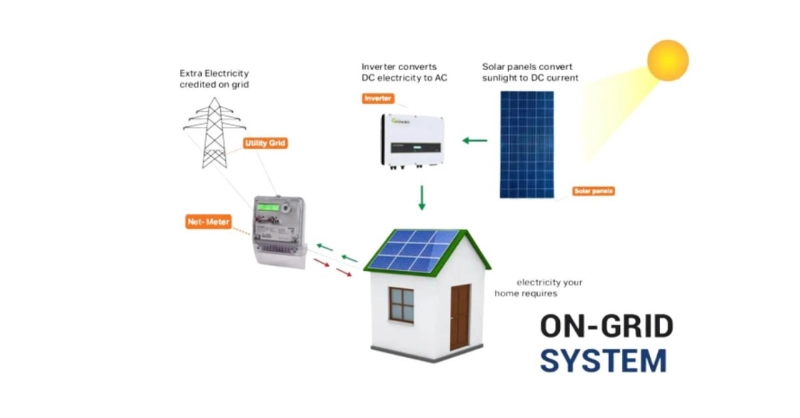With the rapid advancement of technology in the field of solar energy, more and more people have started installing solar energy systems. Among the many different types of systems installed around the world, on-grid solar power systems are the most chosen.
What is Solar On-Grid System?
A solar on grid system is a solar energy production system where it is connected to the utility grid. The electricity generated by the system is sent to the grid from where it is used to power various appliances. Its installation is also hassle-free and easy to maintain.
How does an on-grid solar power system work?
The arrangement of solar modules absorbs sunlight on them and converts them into electricity. The current generated here is direct current (DC). The solar inverter then converts the DC into alternating current (AC), thus powering electrical appliances. This electricity is then sent to the grid where it is supplied for daily use. An important feature is a net meter. It is a device that records the energy supplied to the grid and the energy consumed. At the end of each month, the balance is recorded and a bill is provided to the consumer.
Benefits of On-Grid Solar
Zero electricity bill –Although the solar power system is connected to the grid, the consumer only has to pay for the excess electricity consumed. The bill generated on a monthly basis determines whether the consumer has to make a payment or not. However, at the same time, if the consumer uses less power, the excess power is fed back into the grid.Easy maintenance –On-grid solar power systems have minimal components along with simple installation. Removing the batteries makes maintenance very easy.Passive Income Generation –With the connection to the grid, the consumer can charge for the excess electricity they generate. This not only cuts down on your electricity bills but also provides cost benefits for generating additional electricity.Solar energy has many advantages including a reduction in electricity costs and usage in particular. However, there are other benefits that depend on the type of system you choose.


